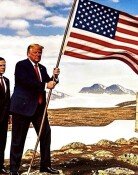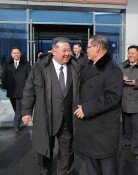[Editorial] Still a Long Way to Go
[Editorial] Still a Long Way to Go
Posted October. 31, 2008 09:13,
Korea signed a currency swap deal worth up to 30 billion dollars with the United States yesterday. This deal not only eased the pressure from the dollar shortage but also upgraded the Korean economy on the global stage simply beyond stabilizing the won-dollar exchange rate.
Though Korea is the worlds 13th-largest economy, its currency has a weak global presence, and the countrys sovereign rating of A is far lower than AAA, the basic level to sign a deal with the United States. Given the circumstances, the Lee Myung-bak administration must be applauded for its efforts to improve bilateral ties and its policy coordination efforts. The swap deal came thanks to the close relationship between the countries two presidents and the efforts of the Strategy and Finance Ministry and the Bank of Korea to persuade the U.S. Treasury Department and the Federal Reserve Board. Japan also helped in highlighting the importance of coordination among Korea, the United States and Japan. In addition, the National Assembly passed a bill on extending state guarantees for foreign loans worth up to 100 billion dollars, laying the foundation for securing stability in the financial market.
Its too early to say, however, that Korea has escaped the global financial crisis. The country needs to manage its financial market more carefully to prevent a further shortage of funds. It will be challenging to deal with capital flight and prepare for potential attacks from hedge funds. Seoul must also protect its market from the influence of investment encouraging market concentration and certain financial products. Additionally, it must sign a currency swap with China and Japan, the worlds first and second-largest holders of foreign currency reserves, respectively.
Koreas real economy also needs help. The governments decision to allow large companies to build or add new factories in the Seoul metropolitan area from March next year was inevitable to sharpen national competitiveness. Regulating areas attractive to investment and balancing national development, which developed nations have already abandoned, make no sense in the globalized world, where the survival of a countrys economy is often under threat. The global financial crisis has hit both the Seoul metropolitan area and the provinces. The top priority is to enhance Koreas overall ability to defend its economy. Provinces should demand more than regulation in the metropolitan area. They can succeed if they become more creative and strategic in drawing companies like South Jeolla Province, which has attracted investment worth 19 billion won (14.9 million U.S. dollars) from companies in the metropolitan area by offering specifically tailored incentives.





![[이진영 칼럼]잘난 韓, 못난 尹, 이상한 張](https://dimg.donga.com/c/138/175/90/1/wps/NEWS/IMAGE/2026/01/20/133198367.1.jpg)

